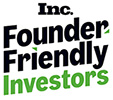We offer business sellers full and fair prices, with a high-degree of certainty of close, for companies fitting our criteria. In addition, given our long-term oriented approach, the valuations and structures we provide factor in the ability of the company to thrive in all economic conditions and withstand cyclical downturns. Each transaction situation is different and each seller has unique objectives; therefore, we maintain a flexible, opportunistic, and partnership oriented view regarding valuation and deal structure.
The following items are often the major items we consider when arriving at a company’s valuation:
- Strength and tenure of the management team, including the breadth and depth of the team outside of the CEO
- Degree of management transition that the sellers desire; moreover, if the CEO is leaving post-sale, does his/her replacement presently exist in the business or will we need to recruit someone from the outside
- Management’s desire for meaningful company ownership and degree of excitement at participating in the future upside of the business, so as to align interests between us as investors and company leadership
- Future organic growth prospects, as well as opportunities to grow via selective acquisition
- Unique competitive advantages
- Number of employees involved in engineering and/or new product development
- History of new product development and future product roadmap
- Level of value-added and differentiation in products and/or processes
- Historical stability of gross and operating margins
- Degree of cyclicality
- Length of relationships and levels of concentration with top customers and suppliers
- Growth rate of the company’s markets
- Market share and opportunity to enter adjacent markets, either organically or via acquisition
- Fixed asset and working capital intensity
- Scalability of product development (standard, modular, or custom products)
1. Introduction to the company through a phone conversation or an informational memorandum. We routinely sign nondisclosure agreements to advance to this step
2. Recent financial information on the company provided to Hanover.
3. Depending on the depth of previously provided information we might request a conference call with a business’s owner or president to probe further…
4. We provide an “indication of interest letter” with a value or range of values for the business
5. Our principals visit the company
6. We negotiate a “Letter of Intent” with the owner or intermediary.
7. We perform additional due diligence and confirm financing
8. Documentation and closing.
With some basic financial and business information, we can give you an indication of value very quickly, usually in a couple of days. For a company of interest, we will visit facilities and owners or managers as soon as the seller allows. Assuming the company visit confirms our initial assessment, we can draft a letter of intent immediately. Closing can occur 45-90 days from signing of the LOI, while the average period is 60 days. Closing quickly is often a function of the seller’s and their advisor’s responsiveness in due-diligence as much as it is the buyer’s speed of the process. We understand that management has a company to run and the sale process is run in parallel to their day-to-day operating activities; therefore, we seek to minimize distraction for management by focusing on only the most critical issues and due-diligence requests needed to complete the transaction. We pride ourselves on completing acquisitions swiftly, negotiating as non-adversarial partners, respecting management’s time, and concentrating on the bigger picture of getting the deal done so that we can collectively reach the original transaction goal of growing the business together.
Our portfolio companies’ management teams have full operational autonomy and maintain leadership independence. Hanover Partners does not take day-to-day operating roles in our portfolio companies; rather, our philosophy is to be active board members and engaged partners. We strive to be a helpful resource, prepared and excited to support all of our portfolio companies on a variety of strategic issues and tactical projects.
Initially, this involves ensuring a smooth transition of ownership, and hiring of replacements for retiring prior owners if appropriate. Subsequently, Hanover and other members of the board help the company with strategic issues, growth initiatives, product roadmap refinement, operational improvements, strengthening internal controls and upgrading systems, establishing key performance indicators, recruiting additional management team members, capital allocation, facilitating introductions to our network of functional and industry experts, raising incremental equity and debt financing for expansion and/or working capital, exit planning, etc. We can also serve as a portfolio company’s outsourced corporate development team by managing add-on/tuck-in acquisition sourcing, screening, execution, and financing.
Lastly, given our over two-decades of working with small-to-medium sized companies across numerous economic cycles, we can often offer our management partners our experienced perspective on a variety of issues and serve as a collaborative sounding board
We acquire companies based upon their historic success, and we are counting on the continuation of that success and we see our role as helping to catalyze and support further progression. We value a successful company’s existing management team very highly, and dramatic changes to the organization will not be in our best interest. Further, over our twenty-year history, we have never moved a portfolio company from its original location, unless otherwise to expand operations to additional facilities to accommodate growth. Without exception, we respect the company culture and honor the legacy that founders and previous owners have built. Given our focus on small-to-medium sized companies, our interests are in building upon an already strong foundation, growing the business, expanding operations, and recruiting additional talented employees. We are highly-experienced in working with privately held and family businesses and are sensitive to sellers’ wishes that a new buyer act as a thoughtful steward. Lastly, at the Letter of Intent stage, we make references available from former and current founders, management partners, and sellers and we strongly encourage business owners to contact these references so they can hear first-hand how Hanover Partners conducts business.
Our investment horizon is longer than other institutional investors with our average historical hold period exceeding well over 7 years. Generally, we seek a five-to-ten year hold period. Notably, we have owned several portfolio companies for over 10 years, including our most successful investment.
We are sensitive to our management partners wishes on liquidity and we generally defer to their preferences on exit timing. Our philosophy is that management knows the business, industry dynamics, and market conditions best. As such, some of our historical investments that were sold under our typical hold period resulted from management’s view that it was the optimal time for a company’s sale.
- Twenty-year history of focusing exclusively on small-to-medium sized specialty manufacturing companies. Our sector experience and disciplined approach to “investing in what we know” allows us to be better investor-partners for management. We understand the opportunities and challenges that manufacturing companies face, the levers to drive value and improvement, and we have invested across numerous economic cycles.
- Healthy appetite for product technology risk. We embrace engineering intensive business models, spanning capital equipment to instrumentation to software.
- Ability to finance all of the junior capital necessary to complete a transaction.
- Less use of third-party debt versus industry averages.
- None of the Hanover Partners Principals come from traditional investment banking finance backgrounds. Further, the Co-Founding Principals had significant company operating experience across various functional roles prior to forming Hanover Partners.
- Patient, long-term approach to investing; our average portfolio company hold period has exceeded 7 years.
- Non-bureaucratic firm, with a collegial culture. We do not have a formal investment committee and maintain a flat organizational hierarchy; accordingly, we offer fast, thorough, and transparent decision making both regarding new investments and in our involvement with existing portfolio companies.
- Investment track-record that consistently rewards our management partners with significant personal financial success given our high-degree of preference for shared economics with management and meaningful equity stakes in their companies.
- We invest a significant amount of personal capital in each transaction so our interests are aligned with management and financing partners.
No. Sometimes called “seller paper,” this is when part of the purchase price is paid for with a promissory note. If a buyer offers you $10 million for your company and asks you to “carry back” or finance $4 million of that, you will only get $6 million in cash at closing. Hanover is very comfortable with all cash deals, and does not normally depend on seller financing (unless the seller prefers this structure). We do, however, encourage owners who are remaining in active leadership roles to re-invest in the equity of the business and therefore benefit from the future growth of the business.
An equity group buyer such as Hanover is usually making a “stand-alone” acquisition while the industry buyer may be integrating the company with similar operations already owned. The industry buyer’s integration may involve layoffs of “redundant” personnel in your company’s management or operating team, while the equity group is typically going to value the existing team, and will be counting on keeping that team. Separately, equity groups deal in cash, while an industry buyer may be a public company and may want you to accept their stock as payment for your company instead of cash.
In addition to investing our own capital, Hanover has partnered with the same institutional investors for over a decade. Typically, we can finance a complete junior capital structure, equity and junior debt, ensuring a faster, more efficient, more certain transaction process because all of the junior capital necessary to complete an acquisition comes from one-source in the form of “one-check”. This approach fosters a more fluid and efficient transaction process. For larger transactions, we will raise a modest amount of third-party senior debt financing, traditionally from commercial banks with which we have long-standing relationships. Importantly, Hanover is extremely prudent and disciplined with the amount of third-party debt used to finance our acquisitions; we don’t believe in achieving our investment objectives based on financial engineering. Rather, our conservative approach ensures that each portfolio company’s capital structure is positioned both for the company’s long-term viability and for re-investing cash flow into growing the business. Generally, if we use senior debt financing, the amount is no more than 1x-2x TTM EBITDA, which is well below industry averages. Given our over twenty-year history of investing in small-to-medium sized manufacturing companies, we are especially experienced in and sensitive to creating capital structures that allow our portfolio companies to withstand cyclical downturns. None of Hanover Partners portfolio companies have been lost to bankruptcy and we have invested over multiple economic cycles.
Additionally, Hanover has the ability to complete significantly sized acquisitions outside of our typical size parameters if the investment opportunity is especially compelling.
We invest across the entire United States, and selectively consider opportunities in Canada. For add-on acquisitions, we will back our portfolio companies to invest anywhere in the world.
Based in Oregon and California, we welcome introductions to local companies yet pride ourselves on our nationwide focus and track-record. Our portfolio companies have spanned across the country from Merrimack, New Hampshire to Plymouth, Minnesota to Kilgore, Texas to Mesa, Arizona and many other locations in between. We have evaluated prospective investments and visited management teams in nearly every state in the country.

